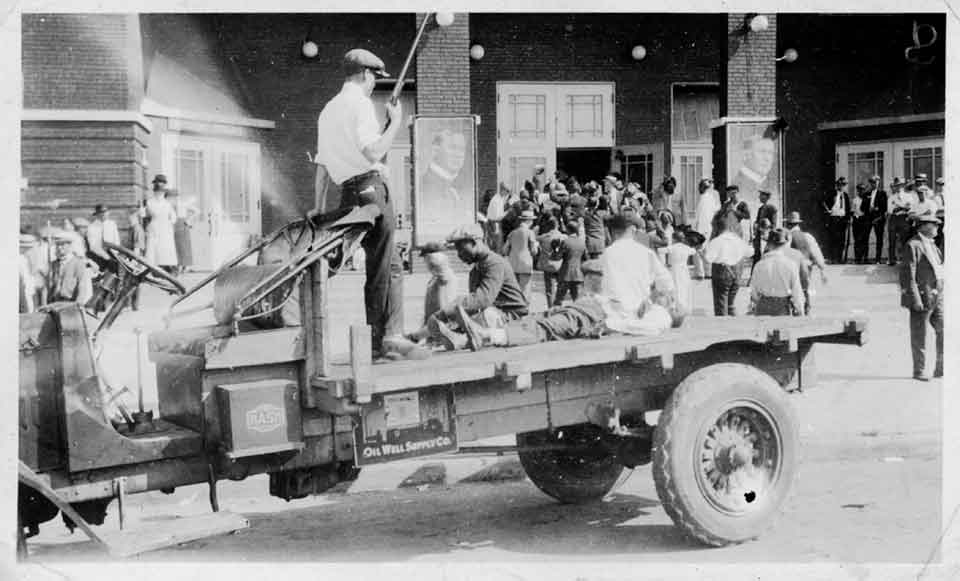Three Poems

things to teach my son
Tulsa, June 1, 1921
how to hold the line at first street. no escape
how to tramp backyard gardens
how to spot hiding places—attics, chicken coops,
long tablecloths
how to force-march men
how to command your peers
loot before you shoot
how a torch makes the cursive motion of a silent
e on every doorstep and window. no escape
loot before you flame
how to stand back from kerosene puddles like
piss after a romp, wide and wary of the fire
how to recruit the police
niggers who escape will bring reinforcements
from okmulgee
never let nobody see you flinch, son
how to hold your bile in front of the boys. no
escape
always grab something nice for your mom and
sister
how bullets can disguise themselves as rose, as
man, as sleep
shoot the dogs. take the horses
how to recruit the national guard
how to move a piano
how to find the good jewelry
how to include women—as drivers, browsers, to
hold the line at first street
how to use trucks, boxcars, boats, to make bodies disappear
the righteous rain of turpentine incendiaries, little
black birds dropping from the sky
how to recognize blackface and not shoot your
own
how to hide it if you do
how to make a rose bloom in the mind of a
nigger who shaped himself greek as a sigh
the magic of making a person a fiction
like israelites or the middle passage
how to turn a people into myth
Sarah Page,
Who schooled you in the Incendiary Arts?
Trained you to wield helplessness?
You, 17, full of hip-switch and giggle
adrenaline-high with the judgment
of a matchbook.
Who taught you
the Craft of Damsel? How to snatch breath
from the air?
He grabbed
your arm, not knowing it was made of fire
and fuel. It’s since been a century fraught
with reverbed 911 screams.
Cities still burn.
Your comfort still kills.
Dear Neighbor,
Mysteriously, unsigned warnings began to appear on the doors of homes and in an Okmulgee, Oklahoma . . . newspaper. These warnings prophetically announced the dire consequences that would befall African Americans who remained in Oklahoma after June 1, 1921.
I’m pinning this to your door because I know
these words will be lost to history.
Let me confess. You take money from my
community. You take our jobs.
My little girl grows too much for shoes. My boy
looks like your pickaninny should.
He asked for your boy’s hand-me-downs. You
undermine everything I teach them
about the White Race. They get nigger diseases
like scabies and I don’t know why.
My wife compares me to you. My mother does,
too. In you, I see my failures
and I hate us for it. The big boys downtown see it,
too. They can smell it on me.
Despite this, I still own you. The sun goes down
on Greenwood June 1st.
Author’s note: The epigraph to the poem “Dear Neighbor” comes from Hannibal B. Johnson’s 1998 book, Black Wall Street.











